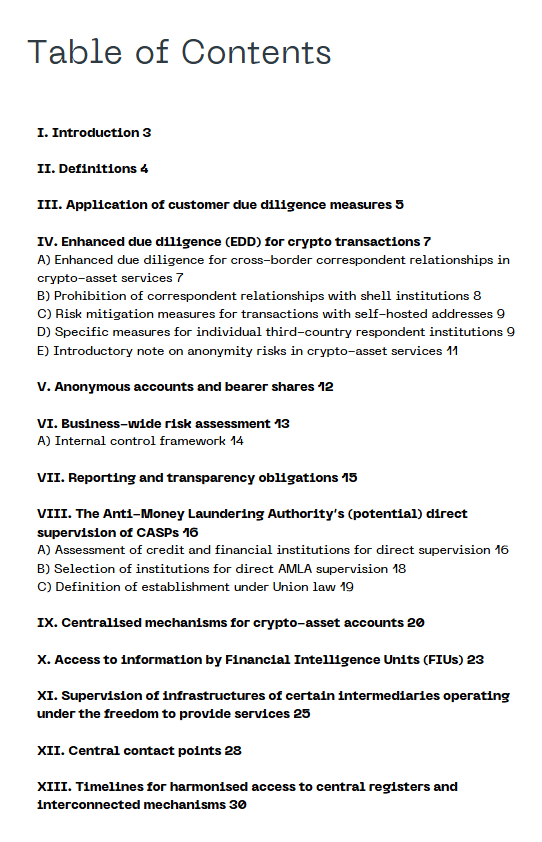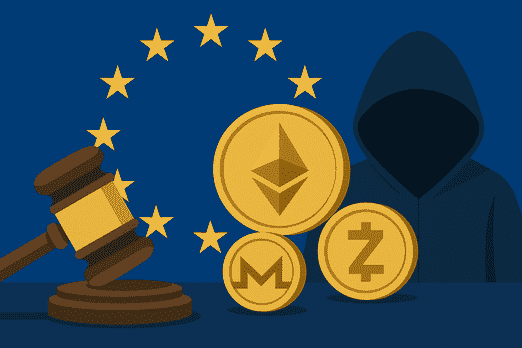The European Union will enforce a privacy token ban and anonymous crypto restrictions starting in 2027.
The rules are part of the new Anti-Money Laundering Regulation (AMLR), adopted to strengthen financial oversight in the digital sector.

Under AMLR Article 79, crypto asset service providers (CASPs), banks, and financial firms cannot offer anonymous accounts or process transactions with privacy tokens.
The regulation specifically targets “crypto-asset accounts allowing anonymisation of transactions” and “accounts using anonymity-enhancing coins.”
Monero (XMR), priced at $240.37, and Zcash (ZEC), trading at $36.75, fall under this privacy token ban. These tokens will no longer be allowed once the rules take effect.
The AML Handbook from the European Crypto Initiative (EUCI) outlines the restrictions. It confirms the application to credit institutions, financial institutions, and CASPs.
Anonymous Crypto Accounts to Be Prohibited Across Financial Sectors
The anonymous crypto ban will apply to various financial products. The AMLR framework covers payment accounts, bank accounts, passbooks, and safe-deposit boxes. It also includes crypto accounts with transaction anonymization.
Vyara Savova, senior policy lead at the EUCI, said the regulation package—AMLR, AMLD, and AMLAR—is already finalized. Only implementation details remain.
“The regulations (the AMLR, AMLD, and AMLAR) are final, and what remains is the ‘fine print’ — aka the interpretation of some of the requirements through the so-called implementing and delegated acts,” said Savova.
According to her, the European Banking Authority will lead the interpretation through delegated acts. EUCI continues to provide feedback during this phase of the process.
Savova added that crypto platforms subject to MiCA (Markets in Crypto-Assets Regulation) must start adapting internal procedures.
These include compliance checks and documentation updates tied to the anonymous crypto rules.
AMLA to Monitor Top Crypto Firms in Multi-Country Operations
The EU’s new framework will also expand direct oversight of large crypto firms. Starting July 1, 2027, the Anti-Money Laundering Authority (AMLA) will supervise selected CASPs operating in at least six EU member states.
In the first phase, AMLA will choose 40 entities for monitoring. The selection process will ensure every member state has at least one firm under supervision.
To qualify, a CASP must meet one of two criteria: serve over 20,000 users in a member state or process more than €50 million ($56 million) in transactions. These thresholds aim to cover entities with wide-scale operations.
The privacy token ban coincides with stricter controls. Transactions over €1,000 ($1,100) will require mandatory customer checks. These measures apply to all CASPs in the EU.
The privacy token ban, anonymous crypto ban, and broader AML framework reflect the EU’s latest step in regulating digital assets under AMLR.
Disclosure:This article does not contain investment advice or recommendations. Every investment and trading move involves risk, and readers should conduct their own research when making a decision.
Kriptoworld.com accepts no liability for any errors in the articles or for any financial loss resulting from incorrect information.


